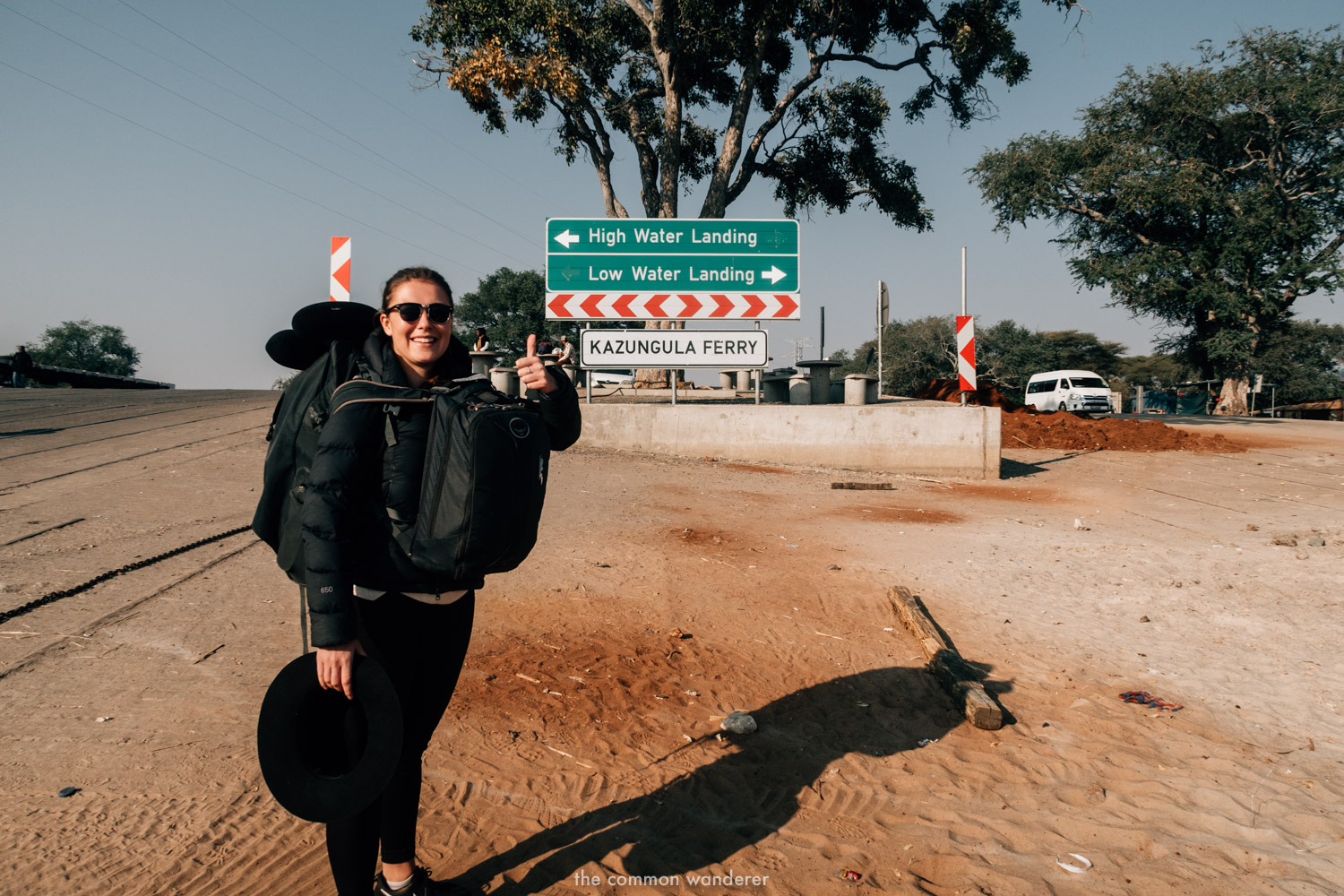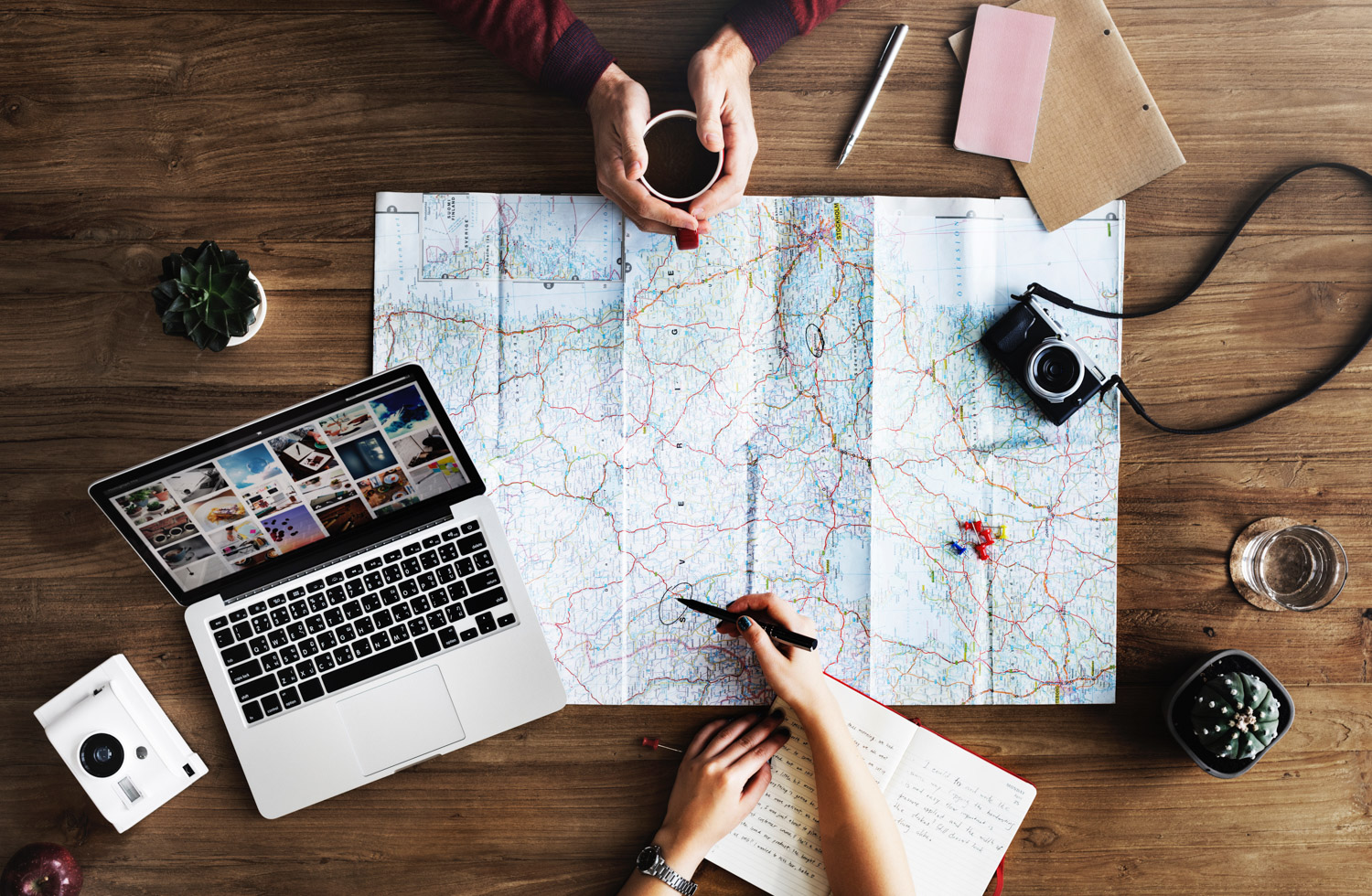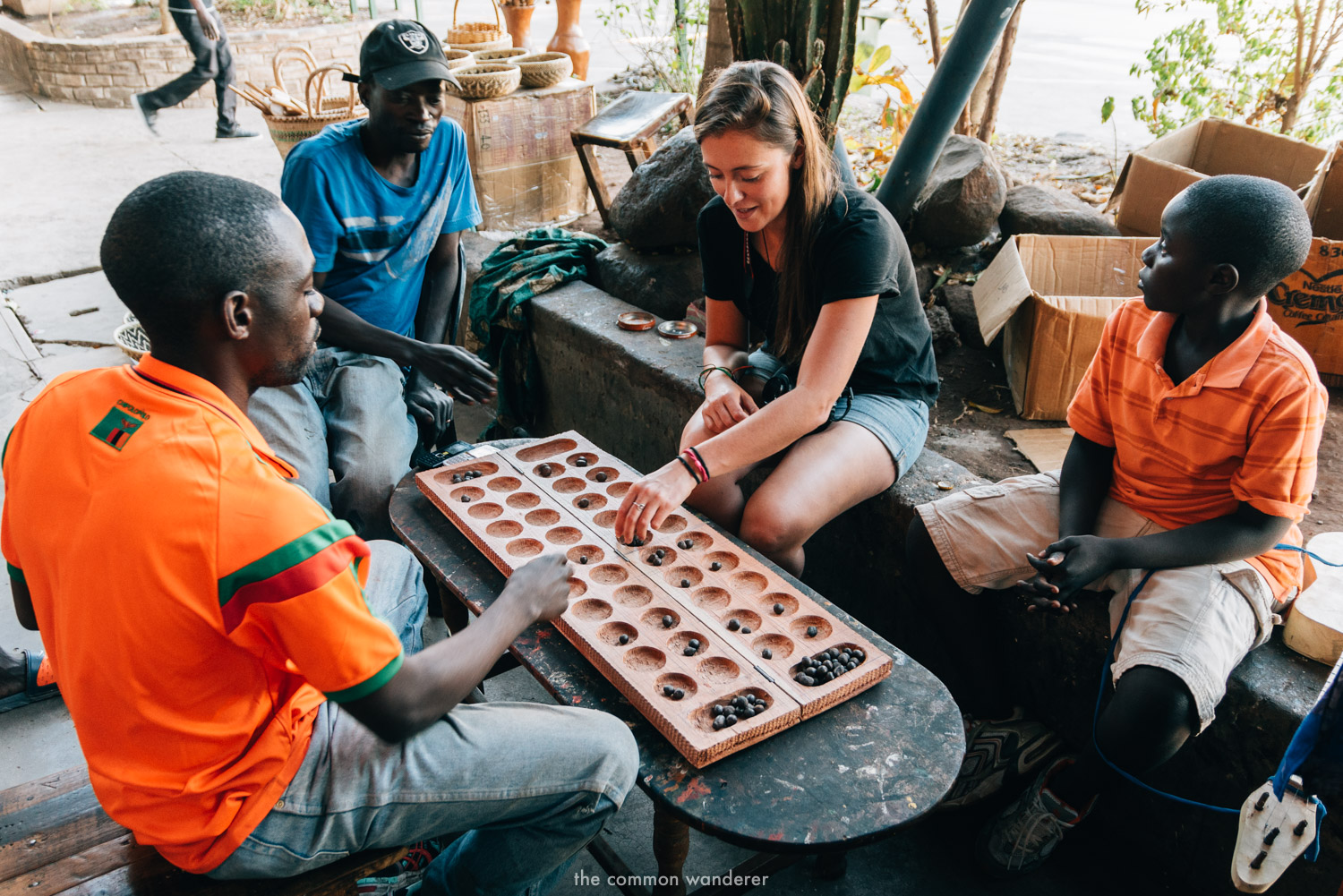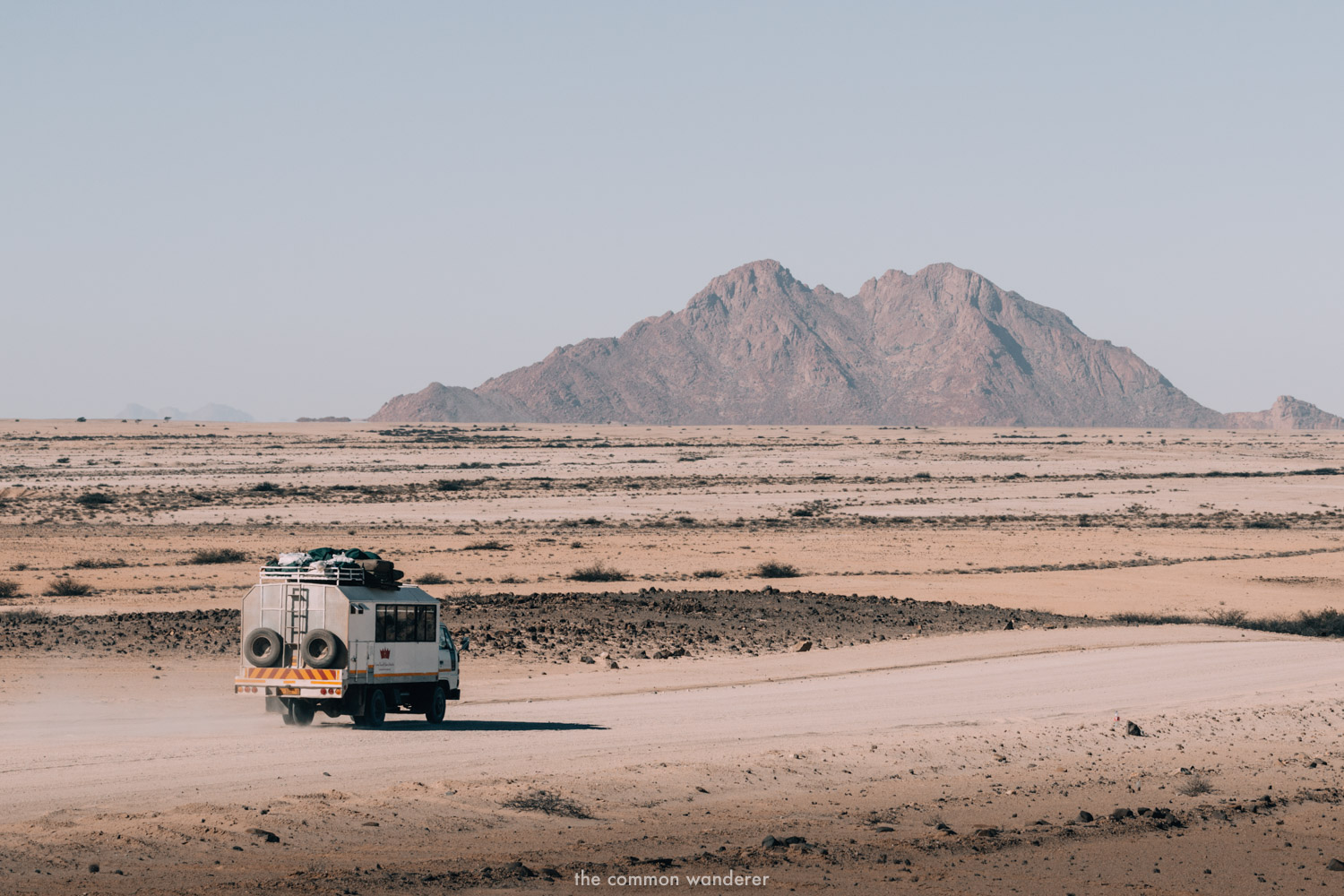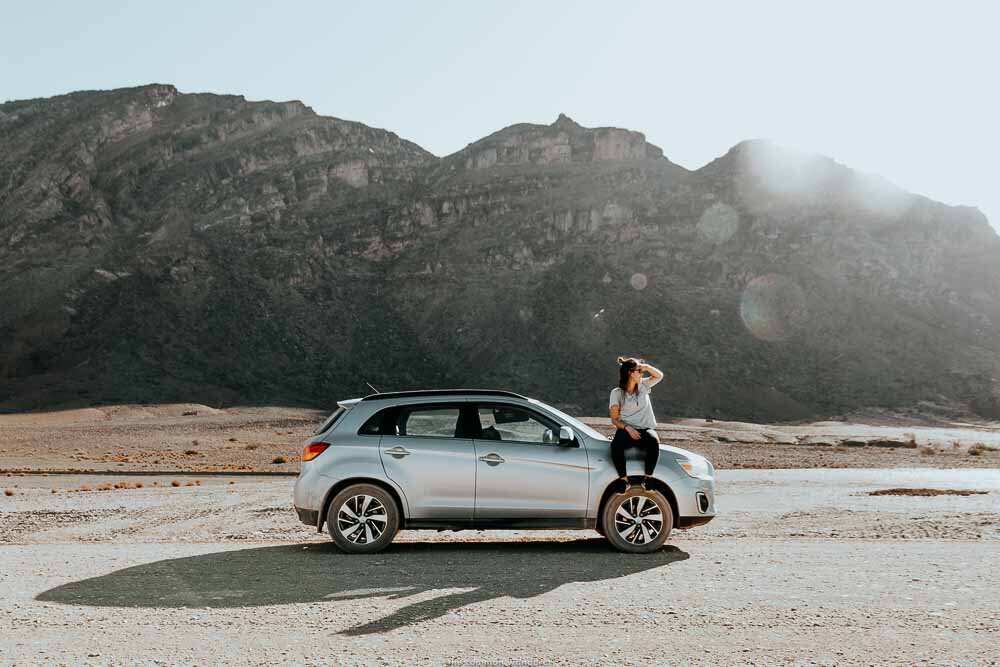Africa travel tips: everything you need to know before you go
Planning a trip to Africa soon? From what to know before you go, how to travel around, and how to stay safe, to avoiding border scams, travel health, and finding accommodation, our Africa travel tips guide will answer all your questions!
You’ve finally taken the plunge and booked that ticket for an epic African adventure, you’ve planned a rough itinerary, picked your safari, and soon you’ll be on your way – hooray!
Believe us when we say that you've definitely just made one of the best travel decisions you could hope to make. From the incredible natural environment to the rich cultural history, the friendly locals to the vibrant markets, Africa has everything, sometimes all at once.
There’s just something about this fascinating continent that pulls you in and keeps you wanting to return over and over again. For many, it's the ultimate in exotic and far-flung destinations. But there’s no also denying that it can also be a daunting place to travel for even the hardiest of explorers!
We've spent a total of 9 months travelling through Southern and Central Africa in our time, and we're the first to admit we were a little lost and confused when it came to planning our first trip there way back in 2014.
Would we be safe? How does one even travel around Africa? Would we end up with Malaria?
Turns out we had nothing to worry about, travelling around Africa is pretty easy, with the right planning.
But those initial questions are exactly why we've compiled this list of Africa travel tips, and stuff we wish we'd known before we left - so you can focus on having the trip of your dream!
AFRICA TRAVEL TIPS: EVERYTHING YOU NEED TO KNOW BEFORE YOU GO
-
TRAVELLING AFRICA: WHAT TO ORGANISE BEFORE YOU GO
While you might be someone who enjoys 'winging it' when it comes to travel (aka us), this is one place where a little bit of pre-prep actually goes a really, really, really long way when you're in this part of the world.
In fact, on our Namibian road trip a few years ago, we arrived into Sossusvlei after an 8-hour drive through the desert without phone service only to discover that the only available accommodation was a room in the super luxurious Sossusvlei Lodge... which also happened to cost about the same as our monthly budget!
If we'd been better prepared, we'd have known it was coming into high season and would have either booked one of the budget options, or organised camping gear and pitched our tent inside the park.
Before you go to Africa, spend some time researching the following and plan accordingly:
Where you want to go
How long you want to go for
What season you want to travel in - is it peak? wet season?
Work out whether you want to travel Africa independently or on a group tour (like Intrepid Travel)
What you'd like to do (safari, Kilimanjaro, etc).
What visas you'll require for each country
What kind of budget you'll need with all of the above in mind.
A few other things to consider:
Is your passport up to date, with at least 6 months left before expiry? You'll also need more than 2 blank pages left in it.
How will you carry your money with you on the road? Traveller's cheques are virtually useless here, ATMs can be temperamental, and carrying huge wads of cash around isn't the best idea. We found using a low-fee bank card, taking out enough for a few days, and stashing it in different places across our bags was the best solution for us.
Your vaccinations and medications: most African countries will require proof that you've had a Yellow Fever vaccination. Malaria prophylaxis like Malarone is another must-have, and if you're planning on trekking at altitude, speak with your doctor about organising Diamox or similar.
It might seem a little daunting to begin with, but trust us, having a good idea of all of the above will make your life a thousand times easier on the ground.
-
WHAT TO KNOW BEFORE TRAVELLING AFRICA
-
-
BE CAREFUL, BUT NOT AFRAID
The whole of Africa has had a pretty bad rap as a war-and-poverty-stricken, crime-ridden, and inhospitable continent over the last few decades, but we've always found that this perception couldn't be further from the truth.
The reality is that most African nations are stable, peaceful, and working towards a brighter future for everyone there.
Being wary, and taking the same precautions as you'd take while travelling anywhere else in the world - of course, while not allowing yourself to become closed off or fearful of every interaction - is the key here and will help you avoid many problems throughout Africa.
You'll quickly realise that most of the fears you've carried with you are unfounded!
-
THE PEOPLE ARE SUPER FRIENDLY
Just as Africa is not the dangerous, backwards place it's made out to be, the diverse and wonderful people who inhabit its countries aren't waiting to rip you off at every opportunity.
Hospitable and friendly folk are everywhere, and we often commented to each other that we felt safer travelling through there than we often did in our own city, or in London (where we lived for 18 months).
You'll probably encounter more unfriendly people on your daily commute on the tube than you will here!
It’s common to be greeted with a huge smile and hello, and most are keen to learn your name, where you’re from and why you’re visiting.
We had Malawians take us under their wing on a confusing and overcrowded long bus ride, new friends help us exchange money for fair rates at a border crossing, families who took us into their homes and cooked us chicken stew while their kids played next to us, a smiley Zambian cab driver who picked us up at all hours for our various adventures, and chatted politics, football, and the best meals in Livingstone, and so many more happy encounters.
We've only ever felt welcomed in Africa; if you're open, friendly, and respectful (particularly bearing in mind that most nations are still deeply conservative), you'll always be treated as a friend.
-
YOU'LL PROBABLY BE CALLED A 'MZUNGU'
You’ll probably encounter the phrase ‘Mzungu’ being thrown your way – often by locals smiling as they wave out of car windows or pass you on the street. The literal translation from Swahili is ‘person who wanders without purpose’, though these days it’s used to describe any white foreigner.
It’s mostly said in a friendly, joking way – so try not to take offence.
-
BUILD FLEXIBILITY INTO YOUR ITINERARY
"Africa time". It's a phrase you'll come to love and hate during your travels here, but the sooner you can embrace it the better!
Life just runs differently here. Buses leave when they're full, not often when they're scheduled. A pick up time of 8am might actually mean 11am and just because you ordered your food an hour ago, doesn't mean it's any closer to arriving.
Rather than getting frustrated by the relaxed attitude towards timings, roll with it - and always build time into your itineraries to account for it.
You'll soon realise it's actually nice to escape the immediacy of the west, where everything has to materialise the minute you've thought of it, and enjoy a more relaxed pace instead.
-
BRING YOUR FAVOURITE TOILETRIES WITH YOU
Generally when travelling, if you run out of your favourite shampoo or sunscreen you can just duck down the street and find a replacement at the local shop or pharmacy. That's not quite the case in Africa, unless you're in a large city, and even then you might struggle to find the toiletries you're used to back home.
We found good sunscreen to be a near-impossible find in most parts of Africa, along with tampons and hair ties. If there are toiletries you simply couldn't go more than a few days without, make sure to pick up some spares at home and add them to your luggage.
-
BE A RESPONSIBLE TRAVELLER
Witnessing people living in poverty can often be overwhelming for travellers, but as tempting as it is to give gifts, money, or good to beggars or children, the most positive thing you can do for them is not to give things to them.
Handouts can actually cause more damage to local communities than you'd realise by perpetuating the idea that Africa needs 'saving' by well-meaning rich foreign tourists.
You might also be surprised to learn that begging is actually one of the most visible signs of human trafficking; encouraging kids to stay out of school and earn money instead, and organised crime gangs to drug or deliberately maim people in order to garner sympathy from tourists and more donations.
Be a responsible traveller, and avoid funding this cycle of abuse. And while we're talking about it, don't take photos of random children (for a start, it's weird - would you walk up to a kid in London and snap a photo of them without another thought?!), and avoid visiting orphanages and schools as it's both disruptive to education, leaves children vulnerable to predators, and is often hard to distinguish a good orphanage from a scam one.
READ MORE | Our top responsible travel tips
BOOK | Travel with a responsible travel company (like our friends at G Adventures!)
-
ALWAYS TRAVEL WITH TRAVEL INSURANCE
We've said it once, we'll say it again (and we'll continue saying it forevermore!) - if you can afford to travel, you cannot afford to leave home without comprehensive travel insurance.
Longtime readers will probably remember Mark's story of getting bitten by a snake in Malawi; the ultimate proof that the unexpected really can happen, especially on a continent like Africa!
We travel with World Nomads insurance - check their prices and coverage here, or search for a quote using the box below.
-
HOW TO SPEAK 'THE LANGUAGE'
If you’re worried you’re going to get stuck at the airport in Tanzania forever because you can’t direct your taxi driver in fluent swahili, stay calm.
You’ll be mighty relieved to discover that despite the 1,500-2,000 local languages spoken in Africa, English is actually an official language in many countries (along with German or French in a few countries!).
It's incredibly widely spoken, and we've never had any issues being able to communicate with people we've met.
Don’t miss out by being lazy and relying solely on English though; learn some key phrases (check out our Southern Africa language guide here!). The locals will appreciate it and you’ll have a much richer experience for it – like the time a friendly Malawian fruit stall owner threw in a few extra pieces (and a few good chuckles at our expense) because we attempted our best Chichewa with him!
know your lekker from your nnyaa: a traveller's guide to languages in southern africa
-
HOW TO TRAVEL AROUND AFRICA
One of the best things about travelling in Africa is no matter where you are, there is always a way of getting from A to B. How you get from that elusive starting point to the end however, is another story altogether.
Taxis, tuk tuks, mopeds, rickshaws, bikes… If it has wheels and looks capable of travelling some distance, you can bet you'll be able to travel on it. Travel in Africa can mean a budget flight, being crammed into a local mini bus with 25 other people (and the odd goat or chicken!), or hitching a ride up the side of a mountain in the back of a pick-up with half a village heading home from the markets.
Travelling by minibus is a rite of passage on the continent, and we totally recommend embracing the uncomfortable seat and cramped conditions at least once on your travels for an insight into how the locals live. Our travel tips for a safe, enjoyable journey are:
Always travel by day. Always.
Always wear your seatbelt, without exceptions. Roads are bumpy, and driving can be speedier and a little more reckless than what you're used to.
Don’t expect to leave or arrive on time – Africa time is real!
You may get a seat. You may not get a seat. You may sit in the aisle of the bus for 5 hours with a chicken pecking at your head. Roll with it – it’s all part of the adventure!
For most mini bus journeys, you can negotiate your fare
Never pay a “bag storage fee” on large buses. It’s a scam – your ticket price includes your baggage.
If you're not too keen on travelling independently through Africa and are looking for something with a little more structure and less hassle, there are PLENTY of options for epic overland group tours too.
BOOK | Check out the huge range of Overland tours on the G Adventures website
-
HOW TO SELF DRIVE AFRICA
It's also possible to self drive Africa - we did it in Namibia! - either by hiring a car or buying a 4x4 for the duration of your stay and selling it on once you're done.
Driving ourselves through the desert plains of Namibia in 2016 is one of the highlights of our travel lives, and we highly recommend it as an option!
If you're planning to hire/buy a car and do it yourself, here are a few things to keep in mind:
Consider the sheer size of the country/ies you're planning to travel through. Most are huge, and the distances between towns can be considerable. Always factor this into your planning.
Petrol can be expensive in rural areas.
Always make sure you fill up with fuel when you see a petrol station (especially if you're heading to remote places, like Namibia).
If you're planning to go off-road, take precautions. Always carry extra water, food, and fuel in your boot.
Always check the hire details: we hired a car in Cape Town and drove it to Windhoek, where we were hit with a ridiculously large ‘cross border’ charge which we were not made aware of before hire. If you’re planning on hiring a car, we recommend not opting for cross-border drop off - it’ll cost you!
READ MORE | Our 10-day Namibia road trip itinerary
the most epic road trip: 14 tips for driving in namibia
-
HOW TO TRAVEL AFRICA SOLO
Africa is a wonderful place to travel solo. Mark spent 3 months backpacking through Africa by himself a few years ago, and it was one of the greatest experiences he's ever had.
If you’re open, you can have wonderfully rich experiences while meeting incredible people. You’ll also find that it’s pretty safe – any dangers that exist for both males and females are pretty the same as anywhere else you’d travel to.
Where possible, follow these tips and you should have no issues:
Be cautious when travelling to remote regions
Don’t travel alone at night
Register your travel plans with your government
Keep in regular contact with members at home
africa inspiration: 13 amazing experiences in southern africa
-
HOW TO AVOID BORDER HASSLES
Unfortunately corrupt border processes are one aspect of African travel that is all too common - and can be seriously frustrating for travellers.
Most of the time you’ll pass with no issue, other times you may have to wait hours for your passport to be processed without explanation, or be asked to pay a corrupt official a bribe.
Crossing into Malawi from Zambia, the border officials held onto our passports, and those of other foreigners, for an eternity after everyone else's had been processed, only lazily handing them back with a joke about paying for speedier service when we frantically pointed out that our bus was starting to roll out of the car park (with all our possessions on board).
It's annoying, and it shouldn't be a thing, but it is.
Then there are the touts offering to exchange your money at rates that are totally ridiculous, or trying to sell you anything from bangles to samosas (side note: always buy the samosas).
Overall, we managed to make it through eight different border controls with pretty minimal hassle, and you can too, by following these tips:
Be informed: Know your visa requirements before visiting any country in Africa. Get in touch with your local embassy before travelling, or pay a visit to Project Visa for answers to all your visa-related questions.
Be organised: While you can get most visas at the individual points of entry, arranging them ahead of time saves a tonne of hassle (and sometimes, money!) later.
Be money smart: Always carry spare US dollars just in case. If you need to change money on the border, always know the exchange rate before you get there and bargain hard.
Be stubborn – if someone looks like they’re deliberately holding things up to make you pay to “rush it through” firmly (and politely!) ask to have your passport back. If you’re certain that your visa meets all the requirements but you’re being asked to pay more to get it approved, decline and ask to speak to another official.
Above all else: approach the process with a smile and have a laugh. It’s easier that way!
-
HOW TO TRAVEL SAFELY IN AFRICA
As we've said before, we've actually felt safer travelling through Africa than we have in other parts of the world. We've also written a pretty comprehensive post about how to travel safely in Africa before, but here are a few pointers we've picked up along the way:
Leave the flashy jewellery and designer labels at home – they’re not practical, and make you a target instantly.
Wear a money belt OR only take a day’s worth of cash out with you.
When taking money out at an ATM, be aware of your surroundings. If something or someone seems suspicious, move along quickly.
We’re photographers, which means we always travel with big cameras and even bigger lenses. But you’d never know, because they’re safely locked away in our bags till needed. Don’t make yourself a target by waving yours around! Keep it in your daypack till you need it, then
Don’t walk the streets at night by yourself, especially in larger cities or towns. If you’re out late, take a taxi or Uber, every time.
Pickpockets exist here as they do everywhere, so if you’re visiting markets, bazaars, train or bus stations be extra careful.
Always keep an eye on your government's travel warning advisory for the latest updates on each country.
When taking cabs, always be wary of broken doors in the back; there have been a few unfortunate cases of people being locked in the back and driven to ATMS where they're forced to withdraw all their cash. If you're travelling in a group, always have someone sit in the front who can help open your door.
africa travel tips: how to travel safely in southern africa
-
HOW TO AVOID SCAMS IN AFRICA
Our general rule of thumb is “if it sounds too good to be true, it probably is”; live by this in Africa and you should be okay.
Here’s what to avoid:
People offering a good or service (e.g. tour) for free, including tours, only to charge exorbitantly at the conclusion of the service
Fake products or tickets being sold at inflated prices
Payment for stored baggage on bus rides
Insisting on carrying baggage at airports or bus depots, then demanding a large ‘tip’
Over inflated taxi or bus rides – always agree on a price first!
People posing as refugees, students or orphans begging
Other ‘payments’ at border crossings, including health assessments or for bogus documents
-
HOW TO STAY HEALTHY IN AFRICA
MEDICATION AND HEALTH
Check with your GP about what vaccinations and medication you’ll need before you depart.
Hot tip: Most countries require Yellow Fever vaccination proof just to enter the country.
We also packed the following to keep us fighting adventure-fit on the road:
Anti malarial medication
Antibiotics
Painkillers
Antihistamine
Hydrocortisone cream
Insect repellent: DEET is your new best friend!
* Sadly, though the lakes in Africa look inviting, many are home to a horrible parasite called Bilharzia. We’re not in the business of horror stories, so we’ll leave you to investigate the delights of that one yourself – but you DO NOT want to get it. Always check with locals before taking the plunge.
WATER IN AFRICA
There’s a pretty common misconception that there’s no clean drinking water in Africa, but we’re here to tell you it is possible to drink water straight from the tap in South Africa, Namibia, and parts of Zambia and Botswana.
Head north and you’ll need to be cautious, but we found carrying a reusable water bottle was a great way to avoid contributing to the 200 billion plastic bottles used each year.
In our opinion, there is no need for a modern traveller to buy bottled water, ever.
Purchase a water filtration + purification bottle (like our faves from The Grayl) and you will literally never need to purchase bottled water again.
BUY | The Grayl GEOPRESS every day, every trip we take!
Alternatively, buy water purification tablets, a LifeStraw, or a Water to Go bottle and you’ll be fine!
FOOD IN AFRICA
All you really need to know is that food in Africa is delicious.
It’s also mostly high quality – though perhaps avoid meat in remote areas due to a lack of proper refrigeration.
discover our eco-friendly packing essentials for travel
-
MONEY IN AFRICA
Africa isn’t a cheap holiday by any stretch – generally the daily costs for a traveller are much higher than in Asia or even South America.
Budget around $100USD per day per person for transport, accommodation and food. Safaris and adventure activities bump up the cost substantially, so you’ll need to allocate more for those.
There are 54 currencies in Africa, so things can get tricky if you’re travelling to multiple countries. Here are a few tips to handle it all:
Most southern African countries have ATM’s or credit card facilities. If not, it’s best to find a local bank and stock up on currency.
If you have a large amount of currency left over when leaving a country, exchange it at the border with a reputable source. Only in extreme circumstances should you use street vendors
Always hide at least $200 USD somewhere safe in case of emergencies
Credit card fraud is big time in Southern Africa, so be wary. We had our cards skimmed in South Africa and temporarily lost AUD$1500!
Tipping is generally expected, though it varies region to region
-
HOW TO TRAVEL AFRICA ON A BUDGET
Many a traveller (including us) has stepped foot on African soil, expecting that every thing they see, eat, and do, will be for a fraction of the price they're used to pay for it at home. And while that's true for certain things, like food and local transport, what gets expensive here is the cost of safaris, day tours, or adventure activities.
Basically, the things you come to Africa to do, are the things you're going to end up paying a loooot of money for.
To give you some idea, a multi-day safari tour could set you back between USD $600 - $4000 (luxury), climbing Kilimanjaro cost us USD $1300 each, and our incredible 2-day Mokoro ride and walking safari in Botswana was almost $600 for us both.
If you're planning to spend a long time in Africa and be able to experience everything you want to do, you have to factor these prices into your planning.
Thankfully, there are plenty of ways to cut your costs on the road and leave some pennies for the stuff you really want to spend your money on, including:
Camp | It sounds ominous, but trust us, this is nothing like the torture they put you through on school camps. It gives you flexibility to sleep where you like, and generally you'll pay USD $3-10 for a decent camping spot (most are also inside hostel grounds, so you have full access to showers, bathrooms, kitchens, etc). This is compared to USD $8-20+ a night for a hostel room.
If your hostel or campsite has a kitchen, cook up your own food as often as you can. Buy cereal and powdered milk for breakfast.
Carry reusable plastic containers, cutlery or sporks in your backpack; they're great for food storage, using as breakfast bowls, etc.
Barter on the price of tours. Like anywhere, bartering is a part of daily life here, and if you think the price of a tour is too high, ask if the operator is able to do a better deal for you. It's worked well for us in the past!
Take local transport rather than hiring private drivers. It's a little bumpier (it's all part of the adventure!), but you'll save lots of unnecessary spending.
Be selective. Going on safari in Africa is a magical, life-affirming experience. But you don't need to do one in every single country that you visit, especially if you're travelling long term. Want to see allll the leopards?
Head to South Luangwa National Park in Zambia. Keen for an elephant overdose? Chobe National Park is your place.
Want to watch the animal migration? Splurge on a Serengeti & Ngorongoro safari. Prioritise your 'must see' items first, and if there's money left over after them, put it towards the 'also nice' options.
-
ACCOMMODATION IN AFRICA
From tailor-made luxury safari tents where you can live like Prince Harry right through to your standard backpacker dorms where snore-proof earplugs are a must – your options for where to lay your head in Africa are many and varied.
Many travellers actually choose to camp their way through Africa (we often did!), because the camping facilities are accessible, safe, full of good amenities, and super cheap.
Plus, what better way to make new friends than by sitting round the campfire swapping stories about your day?!
Larger cities have all the usual accommodation options, the further into the countryside you venture, the less options are available. Don’t fear though, you’ll ALWAYS find somewhere to rest up after a hard day’s adventuring!
Things to consider:
Always book accommodation well in advance during peak season (May – October). Places like Namibia are extremely popular, with very limited accommodation in desert areas.
We used Hostelworld to find the best hostel and campsite deals throughout the continent.
Use guide books, online reviews or local recommendations. Does it get good reviews?!
Does your accommodation have a safe, lockers or locks?
Is there a night watchman/security to make sure you and your belongings are safe overnight?
-
BE MINDFUL OF RESOURCES
Electricity, or lack of it, is big issue in Africa. Many areas have it, yet over 600 million people still go without. As technology develops so does access, however if you are travelling, please take this into consideration. Switch those lights off and unplug your chargers!
We recommend carrying a worldwide travel adapter and a solar charging device (not all rest camps will have consistent access to power!).
Same goes for water – Africa is a dry continent, and has long-suffered droughts. Short showers = benefit for all.
-
AFRICA TRAVEL RESOURCES
These are the tried and tested Africa travel resources that we've used every single day of our travels there!
GETTING TO/FROM AFRICA
Flights | Skyscanner has dates, airlines, and the best deals all in one place
ACCOMMODATION
Hostels + Campsites | When booking dorm rooms or spots to throw up a tent, we booked through Hostelworld almost exclusively
Hotels | On the rare occasion we treated ourselves to a nice hotel room, we always used Booking.com
GUIDE BOOKS
Lonely Planet | Internet can often be patchy, and nothing beats a Lonely Planet guide. We used the Southern Africa guide religiously on our travels!
TRAVEL REVIEWS
Tripadvisor | Tripadvisor has always been an invaluable resource for us when working out what to see or do in a new place
TRAVEL INSURANCE
World Nomads | In case you hadn't guessed, we're all about the travel insurance in Africa. World Nomads has never let us down!
AFRICA TRAVEL GEAR
Read our Africa packing list for a full run down of what to take.
Swiss army knife | We'll never leave home without our Swiss Army Knife, it's a toothpick turned knife turned bottle opener turned miracle
Travel adapter | Always pack a universal travel adapter in your luggage!
-
TRAVEL BETTER WITH THESE ESSENTIAL POSTS
AIRBNB GUIDE | Our essential guide to getting the best out of Airbnb
TRAVEL INSURANCE | Don’t leave home without travel insurance (seriously, don’t!). Click here to get the best deals with World Nomads, our trusted travel insurance provider
PHOTOGRAPHY | Love our photography? Wondering what gear we use to get all of our photos around the world?
Click here to view our detailed photography gear guide, as well as our top travel photography tips!
RESPONSIBLE TRAVEL | Responsible travel is important. REALLY IMPORTANT.
Learn our top responsible travel tips to help you, your family and friends travel more consciously around the globe
ECO FRIENDLY PACKING ESSENTIALS | Don’t leave home without our favourite eco-friendly travel essentials
Have these Africa travel tips helped you plan your own adventures there? Share your stories in the comments below!
LIKE THIS POST? PIN AND SHARE IT!
LOOKING FOR MORE AFRICA INSPO? YOU'LL FIND IT HERE
Some of the links in this Africa travel tips guide are affiliate links.
If you choose to purchase using the above buttons we receive a small commission at no extra cost to you. Please know that by using these affiliate links, you're directly supporting The Common Wanderer to stay wandering, and you're officially a legend.

